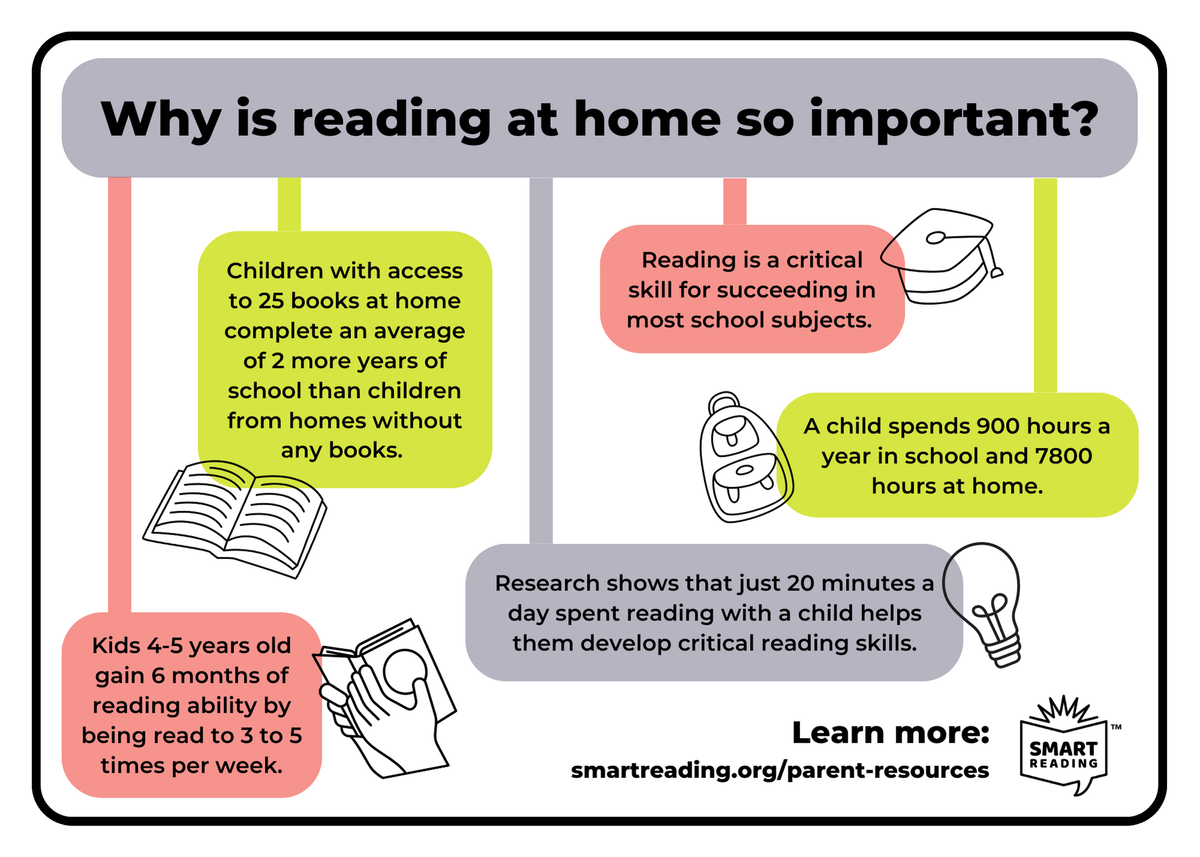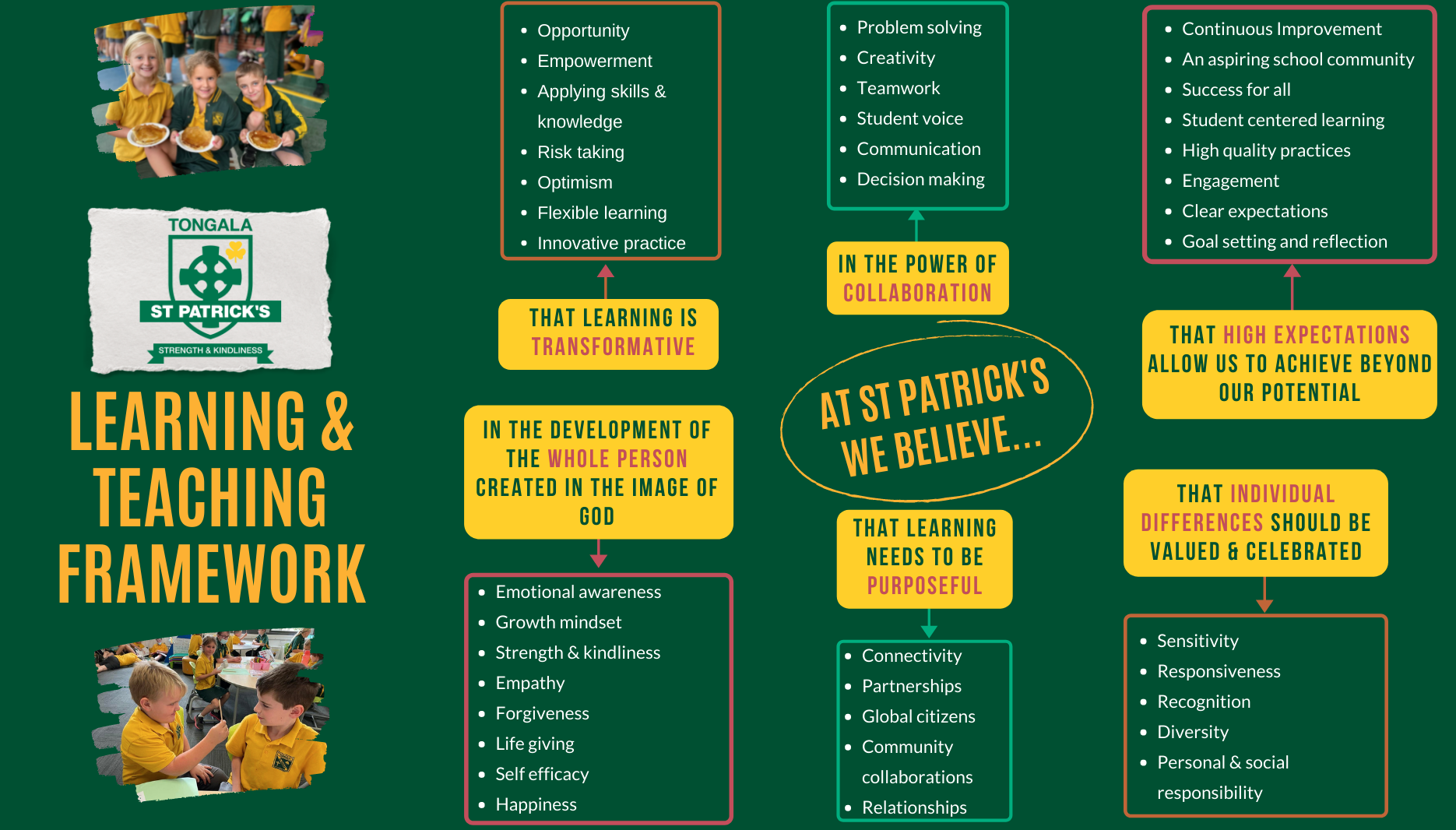Learning & Teaching
Leader: Stephanie Hayes

Learning & Teaching
Leader: Stephanie Hayes


Read Every Night
Whether you read one book or five at night, carving out time to dedicate to reading helps to teach young children that reading is important and a priority in their lives.
Find a Quiet Spot
Reading with young children can be a challenge for those who do not concentrate well.Try to find a quiet spot that allows them to not be distracted. Curling up in your lap in a favorite chair or in their room is a great way to help focus children on the book as well as show them you care.
Make Reading Exciting
Try going to your local library to check out a book or a bookstore to buy some new children’s books. By bringing your child along to select new books, they will be more interested in engaging with them when you get home.
Ask Questions
No matter the age, interact with the book by asking questions. If you have a book that happens to have more words on the page then they will concentrate on, engage the child by asking questions about the pictures and what they think may happen next. Try asking open-ended questions to hear your child’s thoughts on what the book is talking about versus questions that can be answered with a simple one-word answer.
Read About Things They Love
More than anything, reading should be fun! Choose books on topics that your child is passionate about. If they are into robots, dinosaurs, princesses, trains, or animals, find books that fit those topics. By picking a book topic that interests your child, you will have very little issue in engaging them for short periods of time to look at the pictures and follow along as you read!
Remember that the goal for family reading time is to enjoy spending time together while your child accesses a wide variety of books and new words. Even from a young age, children continue to hear and pick up new vocabulary words daily! Reading with you nightly is a key component in making sure your child has the literary foundation needed to be successful!


Students in Foundation to Grade 2 participate in daily Heggerty lessons. The Heggerty Phonemic Awareness Curriculum provides everything you need to teach daily phonemic awareness lessons in 12 minutes or less. Each level of the Heggerty Phonemic Awareness Curriculum provides up to 35 weeks of daily lessons, focusing on eight phonemic awareness skills, along with two additional activities to develop letter and sound recognition, and language awareness. Lessons are designed for a classroom setting, and only take 8-12 minutes each day. Lessons provide daily opportunities to develop phoneme awareness and proficiency through:
Rhyme
Phoneme Isolation
Blending syllables and phonemes
Segmenting syllables and phonemes
Adding syllables and phonemes
Deleting syllables and phonemes
Substituting syllables and phonemes
In the videos we have the Foundation and Grade 1- teachers modelling with their class the different skills.
Miss Hart is completing the ‘Rhyme’ section with her class. Please see link below:
https://drive.google.com/file/d/11qWcDUbECaKvqtz2-Q3Ubo0_4lgx6H1H/view?usp=sharing
Miss Hayes is completing the ‘Segmenting syllables and phonemes’ with her class. Please see link below:
https://drive.google.com/file/d/1R8PcI64ymDrha4RVHhFJ4F-oetp3REMr/view?usp=sharing
Miss Bennett is completing the ‘Adding syllables and phonemes’, ‘Deleting syllables and phonemes’, ‘Substituting syllables and phonemes’ as well as an additional activity which is reciting the nursery rhyme ‘Hickory Dickory Dock;. Please see the link below:
https://drive.google.com/file/d/1y2330wOVwTlFQqXeoynaJVSQB6O1sdOf/view?usp=sharing

